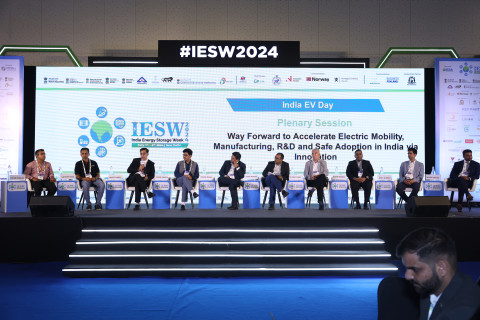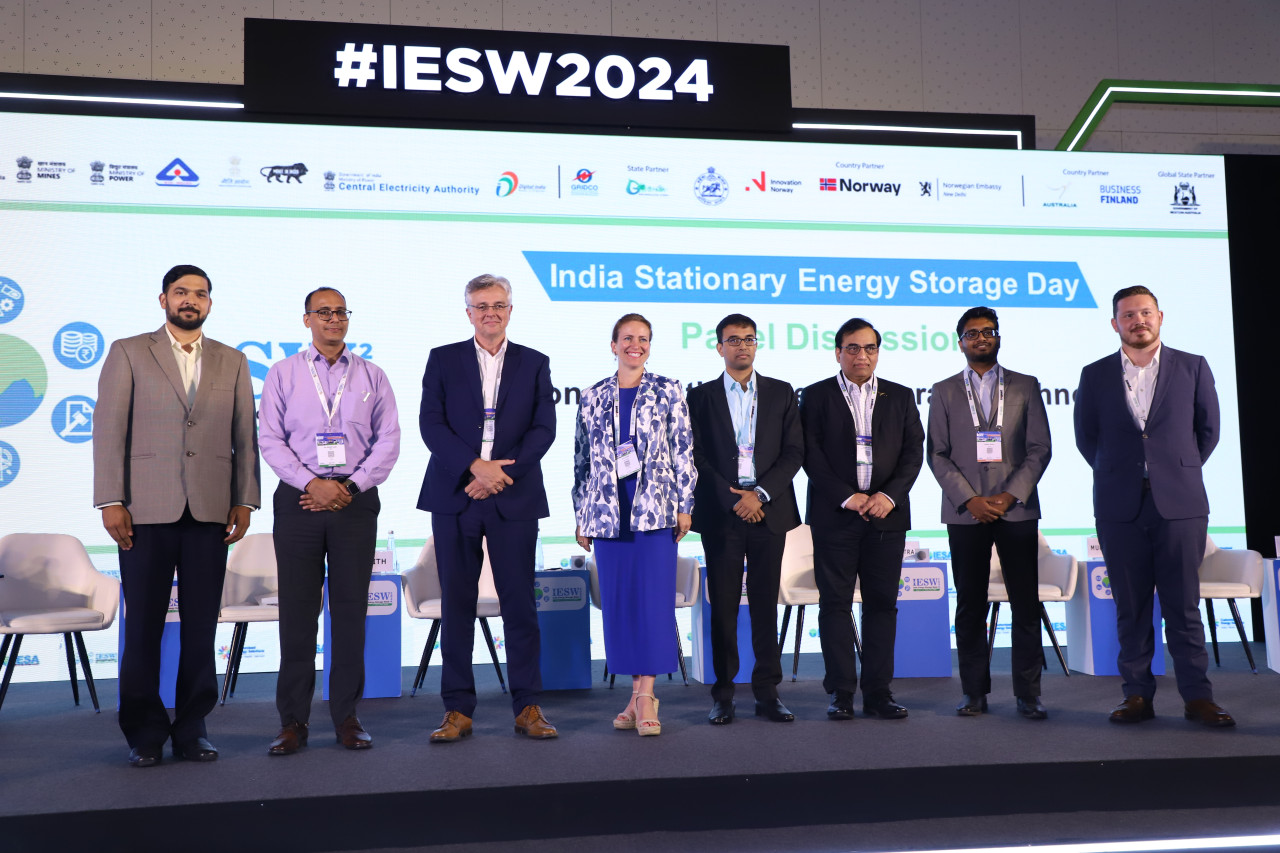IESW 2024: Taking the long-term view on long-duration energy storage in India
Session Chair Kuldeep Rana, Scientist / Director, MNRE, offered introductory remarks. He pointed out the three main aspects of LDES on which we need clarity:
- Definiation (is LDES 6+ hours? 10+ hours? 24 hours or longer?)
- Technology (BESS is good for 4-6 hours. So alternatives such as flow batteries, including iron flow batteries need to be examined. Electro-chemical storage technologies or mechanical pump storage), and
- Costs (initial capital costs, levalized cost of storage (LCOS) at the customer side, absence of regulatory mechanism)
Saurav Mitra, Director, Market Development, Energy Storage Business, Sumitomo SHI FW, displayed the company's Liquid Air Energy Storage (LAES) technology, in which gaseous air is turned into liquid air, reducing its volume, then stored. The process uses clean air and does not burn any fossil fuels, he pointed out.
William Tope, CEO, LiNa Energy, showcased India's 'duck curve' and declared "No matter how much solar is deployed, you can't really decarbonize unless you meet afternoon peak demand with RE technologies (backed by LDES) and not coal fired plants".
He added that in 99 percent of cases, LDES is not a technical challenge, but an economic challenge. "All of us use a phone that has a battery that offers storage or charge for close to 24 hours," he pointed out.
Paul Smith, Senior VP- Global Sales, Energy Dome, showcased what his company calls 'The only viable alternative for LDES': A daily cycling application with a technology that is 6-8 hours plus, up to 24 hours.
"We store liquid CO2, making us a brother to LAES," he said, adding: "Why CO2? Because it it a liquid at ambient or room temperature and low pressure. This means we don't have to do cryogenics, burial deep underground etc."
He pointed out that the company's standard battery --- 20 MW / 200 MWh (10 hours storage) capacity --- was "technically proven, scalable, cost-competitive", and concluded by saying it would soon be offered in India as a 100 percent locally-made product.
Mukesh Kolhe, Advisor, Green Gravity supplied an overview of the Australian company developing gravity energy storage solutions that repurpose legacy mining assets, or old and depleted mines. A commercial design woud be ready by end-2025 or early 2026, with a demonstrator ready by end of 2026, Kolhe told the audience.
Julia Souder, CEO, LDES Council, said existing qualities in India help "amplify the need for LDES", and pointed out that the industry "is asking for targets, because once you have target, then the market opens up as you have regulatory security".
Julia also provided an overview of various technologies and LDES deployments across different contexts and how LDES can support India's target of 500 GW RE deployment by 2030.
Nirmal Shaju, Manager, Scalable Solutions, GEAPP, pointed out that India was a very price sensitive market, "BESS started picking up once costs dropped, so we hope to see more pilots come in" so that the market understands what the cost is. "Once that is understood, we believe the market will pick up," he said.
For mode details of the IESW 2024, visit indiaesa.info





















